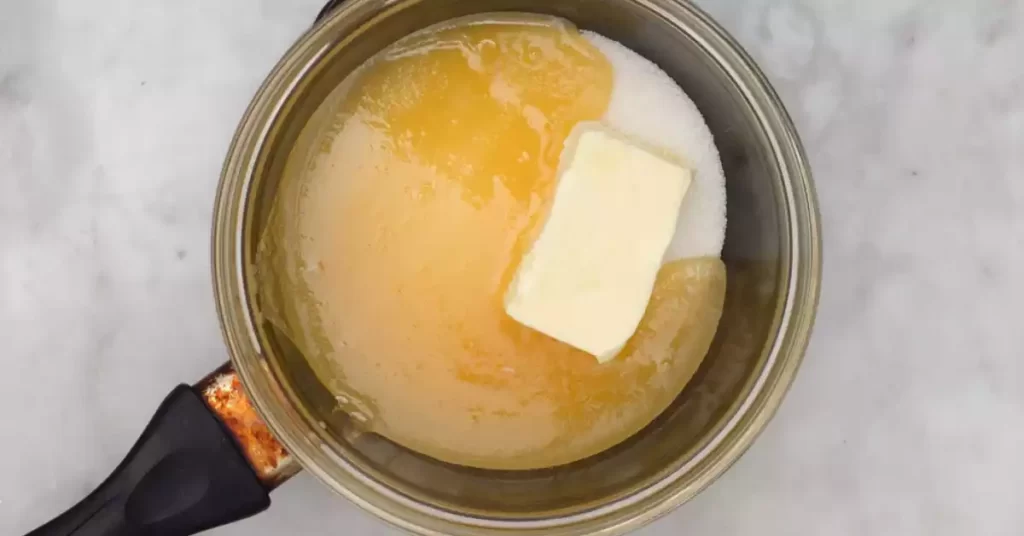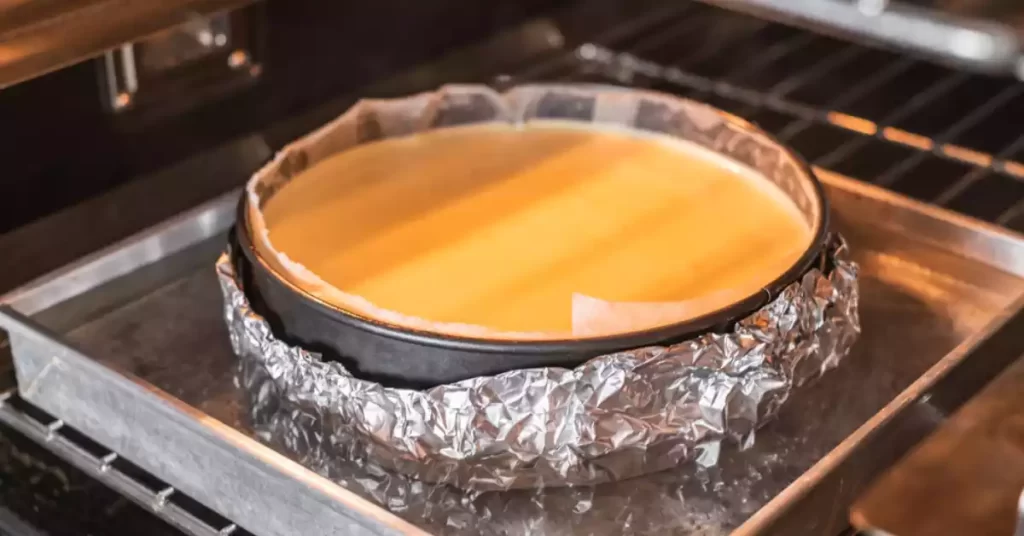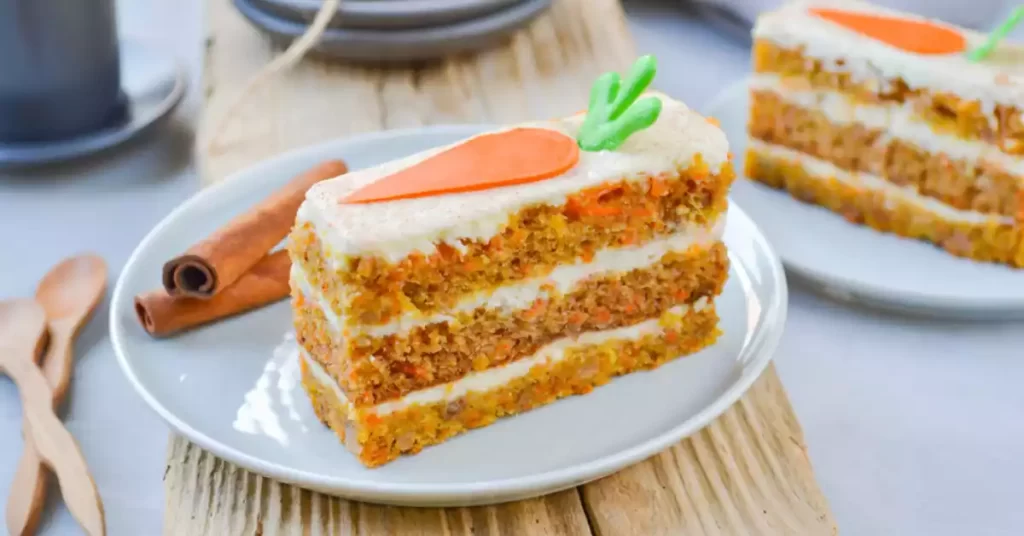Baking a cake is a meticulous process where each ingredient plays a pivotal role in achieving the perfect end result. The balance of flavor, texture, and nutritional value is often contingent on the specifics of the recipe. One question that might intrigue both seasoned bakers and beginners alike is whether water can be used as a substitute for milk in baking a cake.
The simple answer to this query is yes, you can replace milk with water when baking a cake. However, it’s worth noting that this substitution could influence the taste, texture, and nutritional value of your baked treat.
Using water instead of milk in a cake recipe isn’t just about swapping one liquid for another. It’s a complex alteration that warrants an understanding of the basic roles of milk in baking and the potential impact of this change on the end product.
Basic Role of Milk in Baking
Nutritional Components of Milk
Milk is a reservoir of essential nutrients, providing an array of fats, proteins, vitamins, and minerals to your cake mix. These elements not only add to the nutritional value of your cake, but also play a key part in the baking process itself.
Impact on Flavor and Texture
Milk enhances the richness of the cake, contributing a subtle creaminess that’s hard to replicate with water. The fats in milk also result in a tender and moist crumb, significantly influencing the texture of the cake.

Effect of Replacing Milk with Water in Cake
Substituting milk with water in a cake recipe is not as simple as it may sound. The shift could lead to noticeable changes in various aspects of your cake.
Influence on Taste
Milk has a distinctively creamy flavor that enriches the overall taste of a cake. Using water instead of milk can result in a mild alteration in the cake’s flavor profile. The change might not ruin your cake, but it will likely lack the depth of flavor that milk imparts. However, this could be beneficial in recipes where you want other flavors, like chocolate or fruit, to take center stage.
Influence on Texture
Texture is a fundamental aspect of a cake’s appeal, and milk plays a substantial role in achieving a desired texture. The fats in milk contribute to a tender and moist crumb, significantly influencing the texture of the cake. Using water, you might end up with a slightly denser cake due to the absence of milk fats. However, a denser texture does not necessarily mean a less enjoyable cake—it could even be preferable in certain types of cakes.

Scientific Perspective: Milk vs Water in Cake Baking
When you dig deeper into the science of baking, it becomes clear why milk and water cannot be interchanged without some repercussions.
The Role of Milk Proteins and Fats
Milk is much more than a source of moisture in cake recipes. Its proteins interact with the gluten in the flour, moderating its development and helping to create a lighter, more tender crumb structure. The fats in milk, on the other hand, lend moistness and flavor to the cake, enhancing its overall appeal.
The Absence of these Components in Water
Water, while being a versatile and essential ingredient in baking, doesn’t have the proteins and fats found in milk. Consequently, it doesn’t interact with the other ingredients in the same way milk does. This means that cakes baked with water may not have the same tender crumb or moist texture associated with milk-based cakes. But they can still be equally delicious, offering a different, often lighter, eating experience.
Pros and Cons: Milk vs Water
Choosing between milk and water when baking a cake can depend on various factors, from the desired taste and texture to nutritional considerations and cost.
Nutritional Differences
Milk is a nutrient-dense food, packed with essential proteins, vitamins, and minerals. When you use milk in your cake, you add a touch of nutritional value to your baked goods. On the other hand, water doesn’t offer these extra nutrients. But if you’re looking for a lighter, less calorie-dense cake, using water could be your go-to option.
Differences in Cost and Availability
Another factor to consider is the cost. Milk is typically more expensive than water, and for those on a tight budget, using water could significantly cut down the cost of baking a cake. Moreover, water is always readily available, making it a handy substitute when you suddenly find you’ve run out of milk.

Tips for Successful Baking with Water
While baking with water instead of milk might require some adjustments, these tips could set you up for success.
Best Cake Types for Water Substitution
Not all cake recipes will respond equally well to the milk-to-water substitution. Certain types of cakes, like chocolate or spiced cakes, may fare better with water as they have other robust flavors to mask the lack of milk.
Enhancing Flavor with Other Ingredients
When using water instead of milk, you might want to consider ways to compensate for the lack of creamy flavor. This could involve adding more flavorful ingredients to your recipe, like fruit purees, extracts, or spices. This can not only make up for the taste difference but also add a unique twist to your cake.
Experiment: Trying it Out Yourself
The best way to understand the difference between using milk and water in cake baking is by trying it out yourself.
Step-by-Step Guide for Baking with Both
Take your favorite cake recipe and bake two batches: one with milk and the other with water. By doing a side-by-side comparison, you can note the subtle differences in taste, texture, and even the baking process itself. This could be an interesting experiment and a great way to learn more about the art and science of baking.
Frequently Asked Questions
During the process of baking and experimenting with various ingredients, a number of questions might pop up. Here, I answer a few common queries related to the topic.
What are some other possible substitutes for milk in baking?
Aside from water, there are several other substitutes for milk you can consider in baking. Non-dairy milk like almond, soy, or oat milk can work wonderfully. Buttermilk or yogurt can also be used, but keep in mind they are thicker and may add a tangy flavor to your cake.
How does the substitution affect the baking time?
The baking time should remain relatively consistent whether you use milk or water. However, due to the potential changes in texture, you might want to keep a close eye on your cake, especially towards the end of the suggested baking time.
Does the milk-to-water ratio remain the same?
Yes, if you’re replacing milk with water in your cake recipe, you can use the same amount. So, if a recipe calls for 1 cup of milk, you can substitute it with 1 cup of water.
Conclusion
The exploration into the effects of substituting milk with water in cake baking uncovers intriguing facets about the roles of these two fundamental ingredients. Milk, with its rich nutritional profile, imparts a distinctive creamy taste and tender texture to cakes. On the other hand, water, while less nutrient-dense, provides a cost-effective and readily available alternative that results in a different, often lighter, cake experience.
Baking is as much about understanding your ingredients as it is about following a recipe. Knowing how each ingredient contributes to your cake allows you to experiment with confidence, whether it’s using water instead of milk, adding spices for extra flavor, or choosing a suitable cake type for water substitution.
In the end, the choice between milk and water will depend on various factors, including your flavor preference, nutritional considerations, cost, and availability of ingredients. Don’t shy away from experimenting and tasting the results. You might just stumble upon a new favorite cake recipe, proving that baking, at its core, is an exciting journey of discovery and creativity.

I wd like to find a recipe for baking a light, flavorful, rich texture cake, like I am only able to encounter at bakeries (NYC), iow, no matter which cake–vanilla–mix/recipe I use, no matter how stringent I follow the directions, they ALWAYS for my taste come out heavy, dense & even non-flavorful, according to my tastebuds. The best I’ve found is Bob’s organic gluten-free vanilla cake mix; but even that to me is too dense, heavy. I am looking to be able to bake a LIGHT, FLAVORFUL,MOIST, yet rich tasting cake; so I liked reading the nuanced way your writing of effects of cake-baking.
I try to not over-mix, have all ingreds. at same temp., but admit have NEVER come out with the kind of cake I want to replicate, or eat.
So my biggest ? is how to create a light, etc. cake when baking at home?
PS My guess is bakeries have everything needed to continue baking for retail but have some ingredient or mechanism that allows their layer cakes to taste soft and fluffy as far as their cake part is concerned. I noticed trends and years ago, ig. there wouldn’t be enough filling/frosting on/in their cakes; but some time thereafter, it’s bn reversed: now there is too much frosting/filling in them; also now more than before, they seem to keep old cake layers to make up a multi-layer cake–you can taste the difference in the layers of cream-filled/frosted layer cakes, which I never encountered before–so THAT is very disappointing.
Thanks!
Hi SkyWhistle,
Thank you for sharing your experience and feedback. I completely understand your desire for a light, flavorful, moist, and rich-tasting cake.
Lastly, practice makes perfect. Baking is both an art and a science. Keep experimenting, and don’t get disheartened if every cake isn’t perfect. Each baking experience is a step closer to achieving your desired cake!
Happy baking!